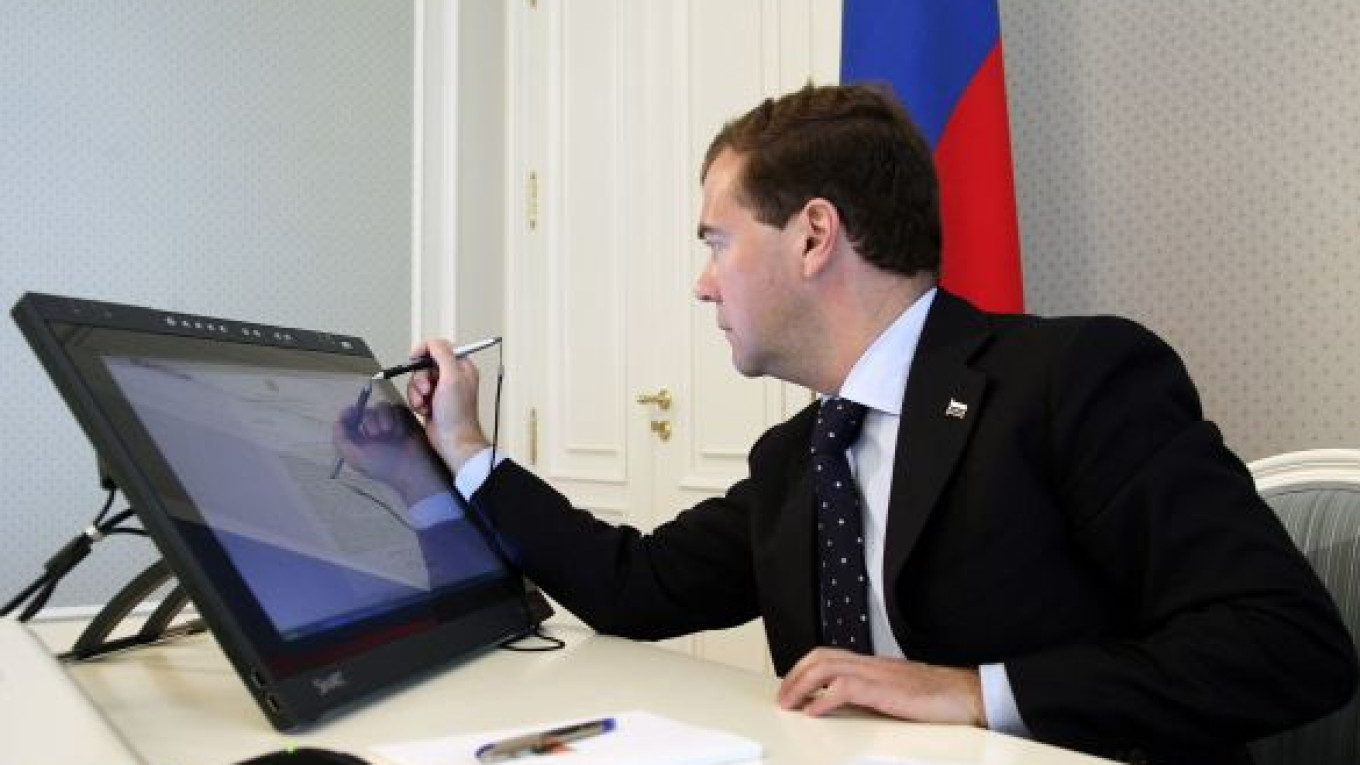President Dmitry Medvedev ordered the government to prepare amendments to a law on government purchases after regional authorities bought CT scanners for as much as four times their factory price.
"This is an absolutely cynical, impudent theft of state funds. I am personally giving an order to the Prosecutor General's Office and the Investigative Committee to ensure that all who were involved in this are severely punished," Medvedev said.
Konstantin Chuichenko, head of the president's audit department, told Medvedev on Tuesday that inspections had revealed that many regions paid as much as 90 million rubles ($3 million), through middlemen, for equipment whose factory price was only 16 million rubles ($533,000).
The scandal comes as the government pours billions of dollars into upgrading medical equipment throughout the country as part of Medvedev's modernization agenda.
The Prosecutor General's Office said it has opened 17 criminal cases in connection with the purchase of 170 CT scanners.
"The inspection uncovered several instances of abuse of authority on the part of officials using funds from the federal budget. … The biggest share of violations in this field is linked with the use of fly-by-night companies and middlemen," said Marina Gridneva, a spokeswoman for the Prosecutor General's Office, Interfax reported.
Inspectors found that the Tula region paid 79.6 million rubles for a CT scanner whose normal price was only 16 million to 20 million rubles.
Prosecutors said tenders for state orders are held in such a way that they exclude companies from providing competitive products.
Similarly, the inspections found that many hospitals and clinics spent hundreds of millions of rubles on equipment that could not be used. A Volgograd region clinic spent 465 million rubles on equipment that the clinic did not use for half a year because of lack of space, prosecutors said.
As a result of the inspections, Medvedev ordered Prime Minister Vladimir Putin to formulate an efficient system for monitoring prices of medical equipment, to prepare a proposal for changes to legislation concerning state purchases of medical equipment, and to develop a system of technical requirements for the purchase of high-tech medical equipment and to implement it with the state bodies performing the purchases. He set a deadline of Feb. 1 for the order to be fulfilled.
The topic of excessive expenditures on medical equipment was first broached on the presidential level in June, when Chuichenko told Medvedev about huge differences across regions in prices paid for the same or similar medical equipment. The president told regional prosecutors at the time to "break the chain of corruption."
A Message from The Moscow Times:
Dear readers,
We are facing unprecedented challenges. Russia's Prosecutor General's Office has designated The Moscow Times as an "undesirable" organization, criminalizing our work and putting our staff at risk of prosecution. This follows our earlier unjust labeling as a "foreign agent."
These actions are direct attempts to silence independent journalism in Russia. The authorities claim our work "discredits the decisions of the Russian leadership." We see things differently: we strive to provide accurate, unbiased reporting on Russia.
We, the journalists of The Moscow Times, refuse to be silenced. But to continue our work, we need your help.
Your support, no matter how small, makes a world of difference. If you can, please support us monthly starting from just $2. It's quick to set up, and every contribution makes a significant impact.
By supporting The Moscow Times, you're defending open, independent journalism in the face of repression. Thank you for standing with us.
Remind me later.


